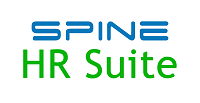Description

Paypro Workforce Management

Payroo Payroll
Comprehensive Overview: Paypro Workforce Management vs Payroo Payroll
Paypro Workforce Management and Payroo Payroll are two distinct products designed to facilitate payroll and workforce management needs for businesses. Here's a comprehensive overview:
a) Primary Functions and Target Markets
Paypro Workforce Management
Primary Functions:
- Time and Attendance Tracking: Automates the process of tracking employee hours, which helps in accurate payroll processing.
- HR Management: Offers features for employee record-keeping, benefits administration, and compliance management.
- Payroll Processing: Provides an integrated payroll system that ensures timely and accurate salary disbursements.
- Scheduling: Assists in creating employee schedules based on business needs and staff availability.
- Reporting and Analytics: Includes tools for generating detailed reports on various workforce metrics.
Target Market: Paypro typically targets small to medium-sized businesses (SMBs) that are looking for comprehensive workforce management solutions. It is particularly beneficial for businesses that need an integrated approach to managing payroll, HR, and time-tracking functions.
Payroo Payroll
Primary Functions:
- Payroll Calculation: Streamlines the payroll process, including calculations for salaries, taxes, and deductions.
- Compliance Management: Ensures that payroll is processed in compliance with local regulations.
- Employee Self-Service Portal: Allows employees to access their payslips and other payroll-related information.
- Auto-Enrolment for Pensions: Provides functionality for auto-enrolling employees in pension schemes.
Target Market: Payroo targets small businesses and payroll service providers, especially those in the UK. Its focus is on giving small firms a cost-effective solution for managing their payroll needs, with an emphasis on simplicity and compliance.
b) Comparison in Terms of Market Share and User Base
-
Paypro Workforce Management: Paypro has a broader target audience due to its comprehensive workforce management features. As such, it may have a larger user base in the US, where integrated HR and payroll systems are in demand among SMBs.
-
Payroo Payroll: Payroo, with its specialization in payroll services and focus on compliance with UK regulations, primarily caters to small businesses within the UK. Its market share is likely smaller and more localized compared to Paypro, given its specific geographic and service focus.
c) Key Differentiating Factors
-
Feature Set:
- Paypro: Offers a more comprehensive suite of workforce management tools beyond just payroll, including HR and time management functionalities.
- Payroo: Focuses primarily on payroll processing and compliance, with fewer features related to HR management.
-
Geographical Focus:
- Paypro: Primarily targets businesses in the US.
- Payroo: Is designed for the UK market, ensuring compliance with UK-specific payroll regulations.
-
Target Business Size:
- Paypro: Suitable for small to medium-sized businesses that want an all-in-one solution for HR and payroll processes.
- Payroo: Primarily caters to small businesses looking for simple, compliant payroll solutions at an affordable price.
-
Regulatory Compliance:
- Paypro: Adapts to the regulatory requirements of the US market.
- Payroo: Specifically built to handle UK payroll compliance, including auto-enrolment for pensions.
-
User Experience:
- Paypro: Offers a broader range of functionalities which may present a steeper learning curve compared to Payroo.
- Payroo: Known for its simplicity and ease of use, which appeals to small business owners without extensive HR departments.
In summary, while both Paypro and Payroo address payroll needs, Paypro offers a more comprehensive approach to workforce management in the US, while Payroo specializes in UK payroll solutions. Their market reach and specific functionalities reflect these distinct focuses.
Contact Info

Year founded :
1992
+1 888-977-0443
Not Available
United States
http://www.linkedin.com/company/paypro-corporation

Year founded :
Not Available
Not Available
Not Available
Not Available
Not Available
Feature Similarity Breakdown: Paypro Workforce Management, Payroo Payroll
When comparing Paypro Workforce Management and Payroo Payroll, it's useful to analyze their feature sets, user interfaces, and any unique offerings. Here's a breakdown based on general industry standards and features commonly associated with workforce management and payroll systems:
a) Core Features in Common
-
Payroll Processing: Both systems handle payroll calculations, deductions, and disbursement, ensuring compliance with tax regulations.
-
Employee Self-Service: Employees can access their pay stubs, personal details, and tax forms.
-
Time and Attendance Management: Basic tracking of employee hours, leave management, and attendance.
-
Reporting and Analytics: Generation of standard payroll and workforce reports to help with compliance and decision-making.
-
Direct Deposit: Capability to directly deposit employee salaries into bank accounts.
-
Tax Management: Management of taxes including filing and calculating withholdings.
-
Compliance Management: Tools to ensure compliance with labor laws and regulations.
b) User Interface Comparison
-
Paypro Workforce Management:
- Typically offers a more comprehensive suite, often resulting in a more extensive interface.
- The UI is generally designed for larger enterprises, with dashboards that integrate various HR functionalities like payroll, benefits, and employee scheduling.
- Emphasis is on customizable workflows and integration capabilities.
-
Payroo Payroll:
- Known for simplicity and ease of use, catering primarily to smaller businesses and organizations.
- The UI is straightforward, focusing heavily on payroll functionalities.
- Offers a clean, minimalistic interface to facilitate quick on-boarding and ease of use.
c) Unique Features
-
Paypro Workforce Management:
- Advanced Workforce Analytics: Offers more in-depth analytics and reporting tools, helpful for strategic decision-making across HR functions.
- Integration Capabilities: Extensive options for integrating with third-party applications like ERP, CRM, and other business tools.
- Comprehensive HR Suite: Often includes additional HR functionalities like benefits administration, talent management, and more.
-
Payroo Payroll:
- Cost-Effectiveness: Generally, a more budget-friendly option, appealing to startups and small businesses.
- Simplicity and Speed: Designed for straightforward payroll processing without overwhelming users with additional features.
- Easy Compliance Tools: Specific features that make compliance with UK payroll regulations particularly straightforward.
Each product serves different segments, with Paypro Workforce Management often appealing to larger companies with complex needs, while Payroo Payroll tends to fit smaller businesses looking for a straightforward payroll solution. Understanding your business requirements will guide which product offers the most value.
Features

Employee Information Management
Employee Time Management
Payroll Processing

Compliance & Reporting
Employee Management
Payroll Processing
Best Fit Use Cases: Paypro Workforce Management, Payroo Payroll
To evaluate the best fit use cases for Paypro Workforce Management and Payroo Payroll, it's important to consider the specific features and capabilities of each solution and how they align with the needs of different types of businesses or projects.
Paypro Workforce Management
a) For what types of businesses or projects is Paypro Workforce Management the best choice?
-
Mid to Large Enterprises: Paypro Workforce Management is an excellent choice for mid to large-sized businesses that require comprehensive workforce management solutions. Its robust features are designed to handle complex HR needs, including time and attendance tracking, scheduling, and compliance with labor laws.
-
Industries with Complex Labor Needs: This solution is well-suited for industries such as manufacturing, healthcare, retail, and hospitality. These sectors often have variable schedules, shift work, and a need for detailed labor cost management.
-
Highly Regulated Industries: Businesses operating in highly regulated environments will benefit from Paypro's compliance management features. It helps ensure adherence to labor laws and regulations, reducing the risk of legal issues.
-
Organizations with Remote or Dispersed Workforce: Companies with remote or geographically dispersed employees can leverage the cloud-based nature of Paypro for efficient workforce management, allowing access to data and tools from any location.
Payroo Payroll
b) In what scenarios would Payroo Payroll be the preferred option?
-
Small to Medium Enterprises (SMEs): Payroo Payroll is ideal for SMEs looking for an affordable, easy-to-use payroll solution that does not require a large HR team to manage.
-
Startups and New Businesses: Startups and new ventures that need a straightforward payroll system to get up and running quickly would benefit from Payroo's user-friendly interface and essential payroll processing capabilities.
-
Businesses with Simple Payroll Needs: Companies with relatively straightforward payroll needs, such as fixed hours and limited employee benefits, will find Payroo Payroll sufficient and cost-effective.
-
Compliance-Focused Small Businesses: Small businesses that need to ensure payroll compliance with minimal complexity will appreciate Payroo’s functionality aimed at meeting local and national payroll regulations.
Catering to Different Industry Verticals or Company Sizes
d) How do these products cater to different industry verticals or company sizes?
-
Paypro Workforce Management caters to larger businesses and industries with complex labor management needs by offering sophisticated tools for compliance, scheduling, and analytics. Its ability to integrate with other enterprise systems makes it adaptable for a wide range of verticals that require in-depth data insights and labor cost management.
-
Payroo Payroll serves smaller businesses and industries with less complex payroll requirements by providing a streamlined and efficient payroll processing tool. It offers essential features that small businesses need without overwhelming them with unnecessary complexity. Its affordability and ease of setup make it accessible to startups and small enterprises across various sectors.
In summary, the choice between Paypro Workforce Management and Payroo Payroll largely depends on the size, industry, and complexity of the business's workforce and payroll needs. Paypro is suited for larger and more complex operations, while Payroo is ideal for smaller businesses with straightforward payroll requirements.
Pricing

Pricing Not Available

Pricing Not Available
Metrics History
Metrics History
Comparing teamSize across companies
Conclusion & Final Verdict: Paypro Workforce Management vs Payroo Payroll
To determine the best overall value between Paypro Workforce Management and Payroo Payroll, it’s important to assess both products based on several key factors such as features, pricing, ease of use, customer support, integration capabilities, and scalability.
Conclusion:
a) Best Overall Value:
Paypro Workforce Management tends to offer the best overall value for larger organizations looking for comprehensive workforce management solutions. Its extensive feature set, which goes beyond just payroll processing to include time and attendance management, HR functions, and analytics, offers more robust capabilities for companies with complex needs.
Payroo Payroll, on the other hand, provides excellent value for small to medium-sized businesses primarily in need of straightforward, efficient payroll processing. It's generally more cost-effective and offers essential payroll functionalities without the added complexity.
b) Pros and Cons:
Paypro Workforce Management:
-
Pros:
- Comprehensive suite covering HR, time management, and payroll.
- Advanced analytics and reporting capabilities.
- Scalable solutions suitable for larger enterprises.
- Strong customer support with customization options.
-
Cons:
- May be expensive for smaller businesses with limited needs.
- The learning curve might be steep due to extensive features.
- Integration with existing systems can be complex and may require additional setup time.
Payroo Payroll:
-
Pros:
- User-friendly interface with straightforward navigation.
- Cost-effective solution for small to mid-sized businesses.
- Quick setup process and easy integration with other platforms.
- Good customer support for payroll-related queries.
-
Cons:
- Limited HR and workforce management functionalities beyond payroll.
- May not scale effectively for larger companies with complex HR needs.
- Fewer customization options available compared to Paypro.
c) Recommendations:
-
For Small to Medium-Sized Businesses: If primary needs are efficient and cost-effective payroll processing, go with Payroo Payroll due to its simplicity and ease of use.
-
For Larger Organizations: If you require a comprehensive solution integrating HR, time management, and robust workforce analytics, consider Paypro Workforce Management. Its scalability and extensive feature set will support more intricate workforce management needs.
-
Budget Considerations: Evaluate the budget carefully. Payroo may provide significant cost savings upfront for its standard payroll package, whereas longer-term strategic benefits with Paypro could justify its higher cost if budget allows.
-
Integration Needs: Consider current software integration requirements. Payroo may seamlessly fit into a smaller ecosystem, while Paypro requires careful planning to integrate with existing systems for full functionality.
Ultimately, the choice between Paypro and Payroo should be guided by the specific needs of your organization, the size of your workforce, and your budget constraints.
Add to compare
Add similar companies



